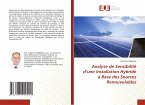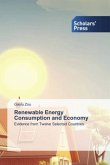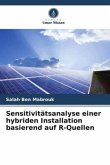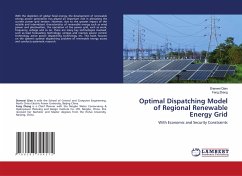For more than two decades, Tunisia has been oriented towards the rational use of energy and the development of renewable energies. Ambitious energy demand management programs have reduced the growth rate of energy consumption and substantially lowered energy intensity. Thanks to these programs and to produce the same level of wealth, Tunisia today consumes 20% less energy than in 2000. Despite the efforts made in terms of energy management, the Tunisian energy mix depends heavily on fossil fuels. Apart from biomass, petroleum products and natural gas cover almost all the energy needs of all sectors. This publication synthetically tells on the one hand, the evolution of the Tunisian energy system and the challenges it will face during the next decades and on the other hand, the main results obtained within the framework of the Bilateral Cooperation projects with the European Union. (EU).
Bitte wählen Sie Ihr Anliegen aus.
Rechnungen
Retourenschein anfordern
Bestellstatus
Storno








